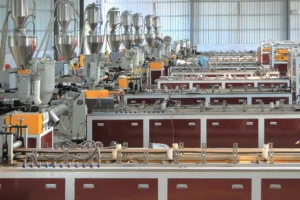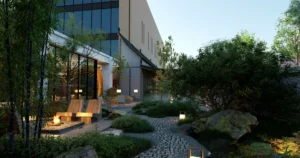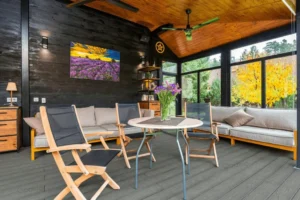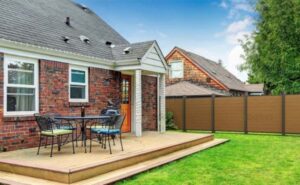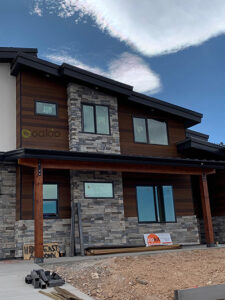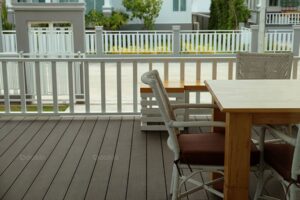Composite Decking: The Superior Choice for Your Outdoor Space
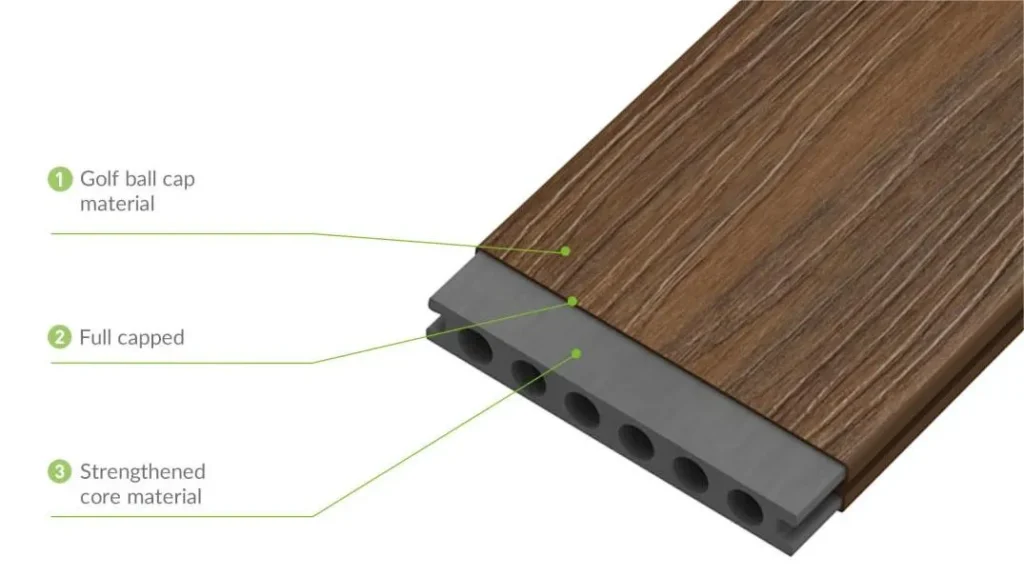
As outdoor living spaces become increasingly popular, homeowners are faced with the important decision of choosing the right material for their decks. While traditional wood has been the go-to option for years, composite decking has emerged as a superior alternative, offering numerous benefits that extend beyond aesthetics. This article delves into the many advantages of composite decking, illustrating why it is a wise investment for those looking to enhance their outdoor areas.
Understanding Composite Decking
Composite decking is a modern innovation that combines organic wood fibers and synthetic materials to create durable and aesthetically pleasing deck boards. Unlike traditional wood, which is susceptible to weathering and requires regular maintenance, composite decking is engineered to withstand the elements while retaining its beauty. These boards are often encapsulated with a protective cap that shields them from moisture, UV rays, and other environmental stressors, ensuring long-term performance and minimal upkeep.
Benefits of Composite Decking
A. Low Maintenance: Spend More Time Enjoying Your Deck
One of the most appealing aspects of composite decking is its low-maintenance nature. Traditional wood decks demand a significant amount of upkeep, including sanding, staining, and sealing every few years. This not only consumes time but also incurs recurring costs. In contrast, composite decking eliminates these burdensome tasks, requiring only occasional cleaning to maintain its appearance.
A simple wash with water and mild detergent is typically sufficient to remove dirt, pollen, and other debris from composite boards. This ease of maintenance allows homeowners to spend more time enjoying their outdoor spaces rather than laboring over their upkeep. The long-term savings in both time and money make composite decking an attractive option for those who prioritize convenience and efficiency.
B. Enhanced Durability: Built to Last
Durability is a critical factor when selecting decking material, and composite decking excels in this area. Unlike wood, which can warp, crack, or splinter over time, composite boards are designed to resist these common issues. The protective capping on composite decking acts as a barrier against moisture, mold, and mildew, which are notorious for causing wood to deteriorate.
Furthermore, composite decking is engineered to withstand the harshest weather conditions, including extreme temperatures, heavy rain, and intense sunlight. This resilience ensures that your deck will maintain its structural integrity and aesthetic appeal for years to come. The durability of composite decking not only enhances the longevity of your outdoor space but also provides peace of mind, knowing that your investment is protected.
C. Aesthetic Appeal: The Look of Wood Without the Drawbacks
For many homeowners, the natural beauty of wood is a key factor in their decking material choice. However, concerns about wood’s vulnerability to the elements often lead to hesitation. Composite decking offers the perfect solution by mimicking the appearance of wood while eliminating its drawbacks.
Modern composite decking is crafted with realistic grain patterns and color variations that closely resemble natural wood. Whether you prefer the classic look of cedar or the rich tones of mahogany, composite decking provides a wide range of options to suit your aesthetic preferences. Additionally, composite boards are available in various finishes, from smooth to textured, allowing you to create a custom look that complements your outdoor environment.
Unlike wood, which can fade and weather over time, composite decking retains its color and finish, ensuring that your deck remains as beautiful as the day it was installed. This enduring beauty makes composite decking an ideal choice for homeowners seeking a long-lasting, low-maintenance alternative to wood.
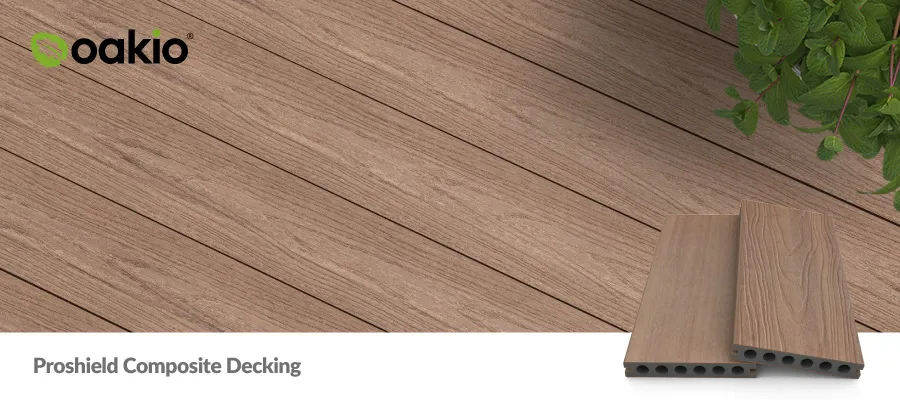
D. Long-Lasting Performance: Resilient in All Conditions
The performance of your deck material is crucial, especially in outdoor environments subject to fluctuating weather conditions. Composite decking is specifically engineered to deliver consistent performance, even in the face of challenging environmental factors.
Exposure to UV rays, precipitation, and temperature changes can cause traditional wood decks to fade, warp, and deteriorate. In contrast, composite decking is designed to resist these effects, maintaining its structural integrity and appearance over time. The advanced materials used in composite decking provide superior resistance to erosion, ensuring that your deck remains strong and beautiful for years.
This long-lasting performance not only reduces the need for frequent repairs and replacements but also enhances the overall value of your outdoor space. With composite decking, you can enjoy a worry-free deck that stands the test of time.
E. Long-Term Cost Savings: A Smart Investment
While the initial cost of composite decking may be higher than that of traditional wood, the long-term savings it offers make it a financially sound investment. The reduced need for maintenance, repairs, and replacements translates into significant cost savings over the life of the deck.
Traditional wood decks require regular treatments, such as staining and sealing, to protect them from the elements. These treatments can be expensive and time-consuming, and even with proper care, wood decks often need to be replaced every 10 to 15 years. In contrast, composite decking’s durability and resistance to weathering mean fewer expenses related to upkeep and a longer lifespan.
When considering the total cost of ownership, composite decking often proves to be more economical than wood. The initial investment is quickly offset by the savings in maintenance and replacement costs, making composite decking a smart choice for budget-conscious homeowners.
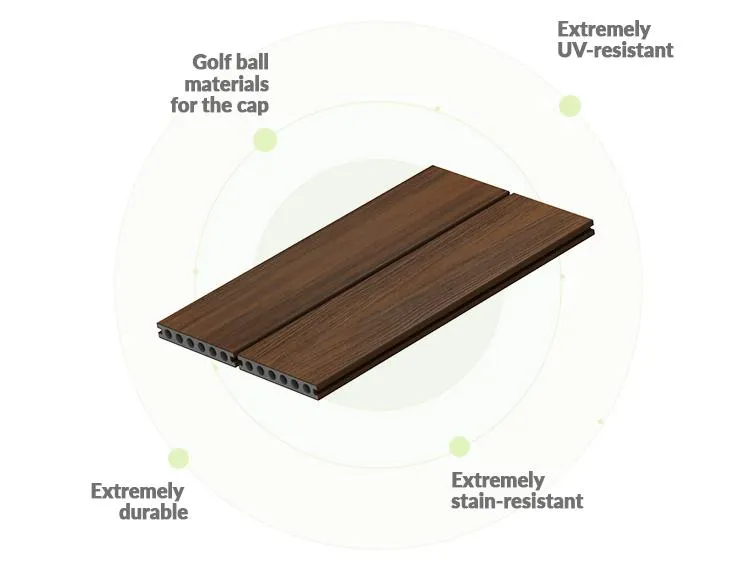
F. Environmental Sustainability: An Eco-Friendly Choice
In an era where environmental responsibility is more important than ever, composite decking offers a sustainable alternative to traditional wood. Composite boards are often made from recycled materials, including reclaimed wood fibers and plastics, reducing the demand for virgin resources.
By choosing composite decking, homeowners contribute to the conservation of natural resources and help prevent deforestation. Additionally, the production process for composite decking is typically more eco-friendly, with many manufacturers employing sustainable practices, such as recycling water and reducing waste.
Beyond the manufacturing process, composite decking’s low maintenance requirements further enhance its environmental benefits. The elimination of chemical treatments, such as stains and sealants, reduces the release of harmful volatile organic compounds (VOCs) into the atmosphere, contributing to a healthier environment.
Choosing composite decking is not only a smart decision for your outdoor space but also a responsible choice for the planet.
Conclusion
Composite decking offers a range of benefits that make it a superior choice for outdoor spaces. Its low maintenance, enhanced durability, aesthetic appeal, long-lasting performance, cost savings, and environmental sustainability combine to create a product that outperforms traditional wood in every way. For homeowners seeking a beautiful, durable, and eco-friendly deck, composite decking is the ideal solution that delivers long-term value and enjoyment. Oakio is a leading provider of high-quality composite decking solutions. For more information, visit the official website at www.oakio.com.
Trending Reading
What Are the Differences Between the WPC Board and PVC Board?
[2024 Update] How Long Does WPC Decking Last?

